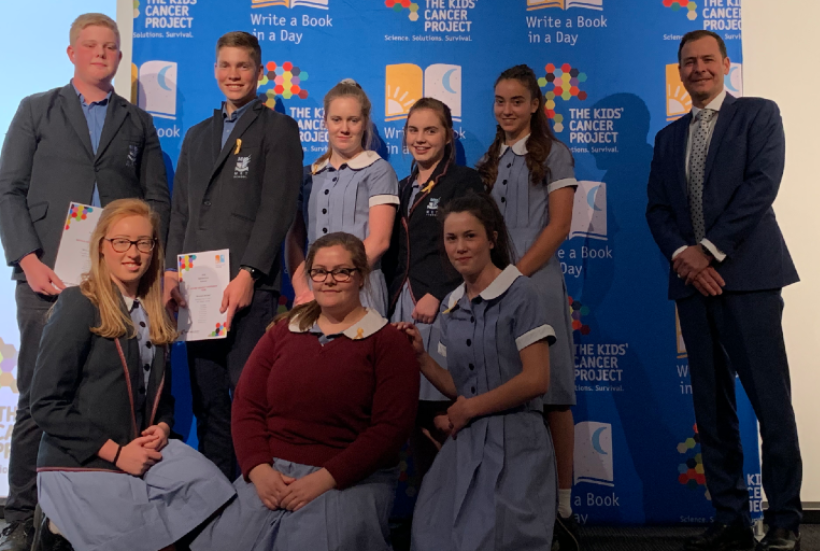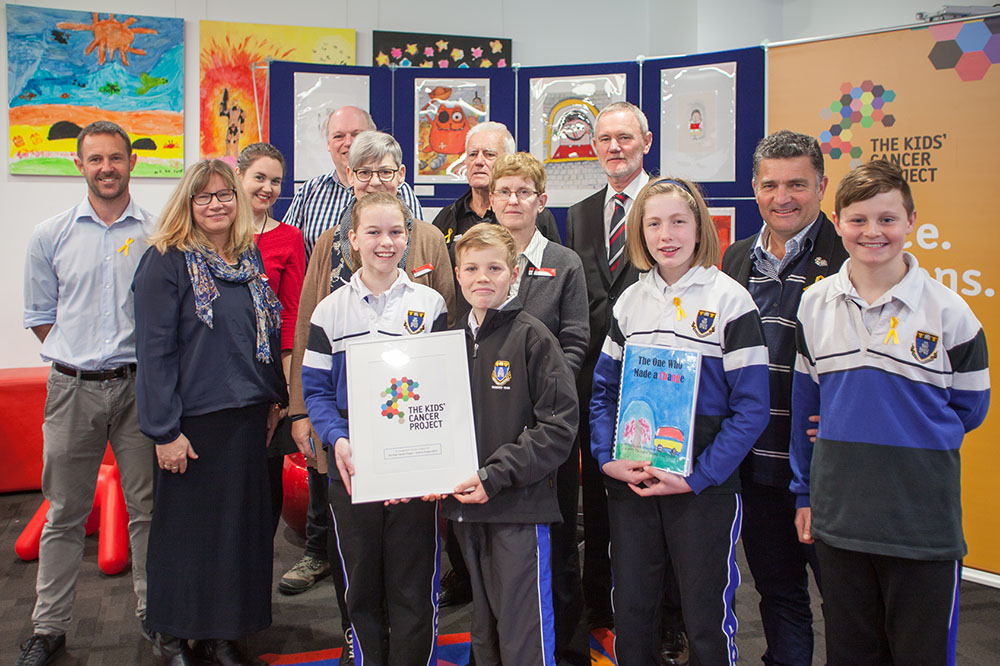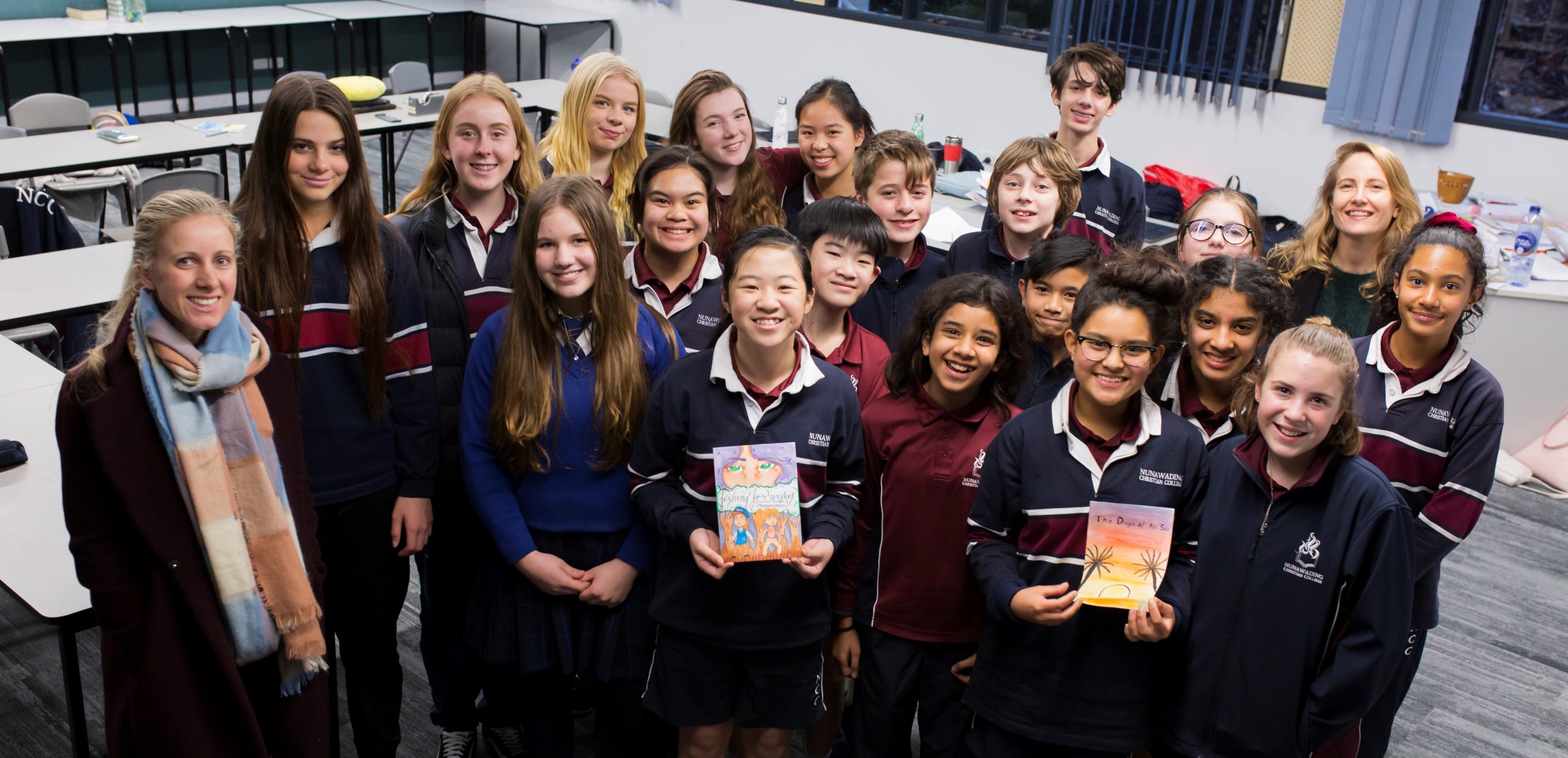For students at home, Write a Book in a Day is a wonderfully valuable educational challenge. By using technology such as Skype, Zoom or Google Docs, it’s easy, too!
The annual Write a Book in a Day challenge at OneSchool Global isn’t just about writing, and it isn’t just about fundraising. It’s also about bringing students, many of whom live in rural and remote regions, together for a day of bonding and teamwork while offering an excellent educational experience.
Participants might be located in Condobolin, Goulburn, Orange, Wagga, Armidale, Sydney or elsewhere – in 2019 one of the team members was in the USA! But simple technology brought them together for a powerful and enjoyable learning experience.
“It was the first time many of the students had experienced that intensive time together in a group situation,” says OneSchool Global’s Head of Orange Campus, Krissy Christian.
“Working to deadlines and under such pressure creates quite a different level of personal relationship. It exposes strengths and vulnerabilities. But they all loved it and they have already asked if they can participate again.”
The teams came together via Zoom. This meant they could see and speak with each other. They could also share work on their screens to collaborate on words, imagery and design.
In the current environment where many students are having to learn from home, Write a Book in a Day provides a rare opportunity for teachers and schools to engage students in a common project.

Bringing Tassie’s students together
Tasmanian teacher Doug Grubert has a decade of Write a Book in a Day competitions under his belt. He has seen it all!
Doug says the remote, technology-driven version of the challenge offers new, valuable social and educational benefits.
“In any group of kids, there will be some who love to get in the zone and concentrate on their part of the job, and there will be others who need to get up, walk around and chat with others,” he says.
“Those more sociable students, in an unintentional and well-meaning sort of way, might disrupt those who might find it harder to focus. But once those quieter students are focussed, they can stay focussed for sustained periods.”
“So, like anything, there are benefits and trade-offs. But remote participation in this type of project allows some kids to switch the microphone and webcam off, and others to collaborate as much as they’d like. Personally, I think a large number of the kids I’ve worked with will get a lot out of the remote version of this challenge.”
In the past, when one team’s illustrator was overseas but still wanted to be part of the creative team, that illustrator participated via Skype.
A member of the school’s IT department set up a laptop that could have its screen dedicated to Skype all day. Whenever a participant needed to speak with the student managing the design, they knew where he was ‘sitting’.
“We ran tests over the previous few days to make sure it would work, and of course we had a phone as back-up in case things failed,” Doug says. “But it was simple and successful to just use Skype and email.”

Decentralised students, centralised document
When Nunawading Christian College in Melbourne took part in Write a Book in a Day, the students were together. But they still utilised collaborative software to complete the project.
By using Google Docs, they could ensure at all times they were working on the very latest version of the book.
Interestingly, says Dianne Styk, the school’s Head of English, this meant they could actually have been in different rooms, homes, or indeed in different countries! The simplicity of the Google Docs and Google Chat technology, which students use on a daily basis in class, meant such a project could be carried out remotely.
“Actually, the technology is one of the aspects I really liked about it,” Dianne says. “It wasn’t just about writing. The challenge for the students is a really good one because they have to demonstrate a number of different, valuable skills.”
“This meant the kids who weren’t strong writers became better writers during the project. And similarly, those that weren’t so tech-savvy picked up new skills. The students had to show expertise and share their knowledge.”
Because the students are so familiar with the technology, Dianne says, teachers have to do little extra preparation prior to a remote version of such an event. And as the tools (Skype, Google Docs, etc.) are easily available and free, there’s no barrier to entry for the students.
In 2020, as a result of the COVID-19 challenges, the Write a Book in a Day writing period has been extended by a month – to 30 September, and other elements have been adapted, to make it easier for students to join remotely.
And, of course, the team from The Kids’ Cancer Project will be available by phone and email to support schools as they enjoy this opportunity to bring students together on a powerful project that supports curriculum requirements.


